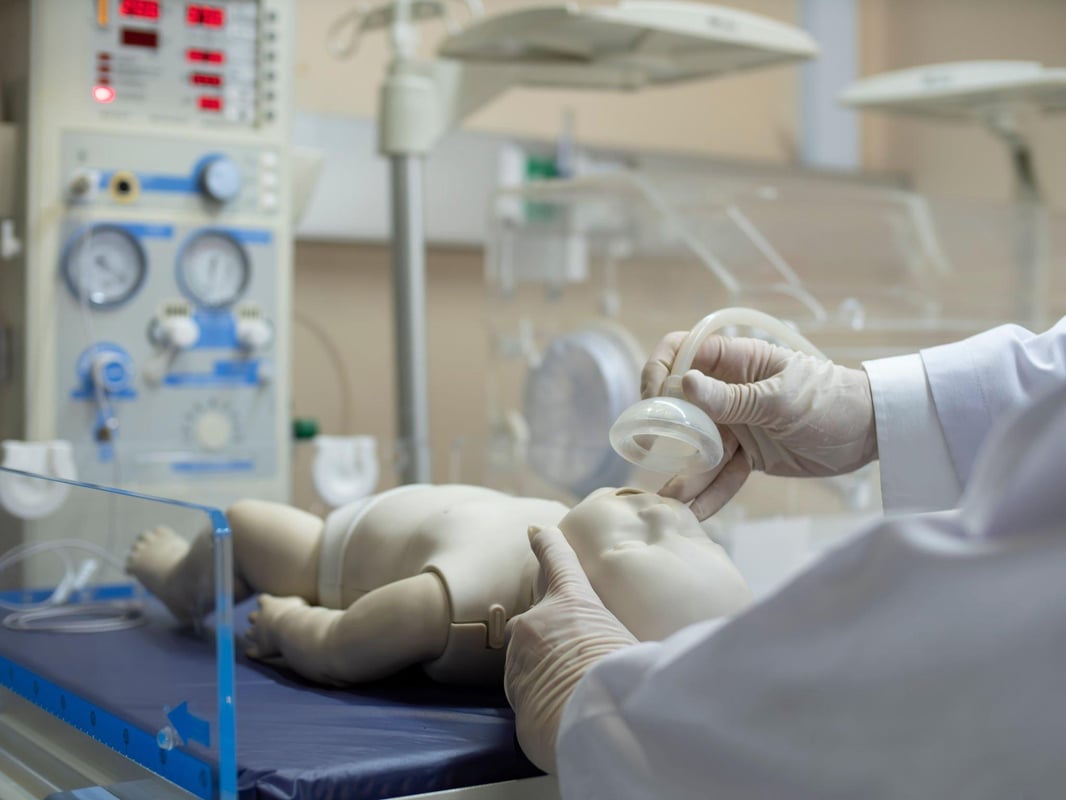
Financial aid (may be available)

Financial aid (may be available)

Financial aid (may be available)

Financial aid (may be available)
$276 total
$2,075 total
$270 total
$410 total
$365 total
$150 total
No cost info
$285 total
$150 total
No cost info
If you're interested in pursuing a career in pediatric healthcare or looking to enhance your skills, Pediatric Advanced Life Support (PALS) classes are an excellent choice. These classes provide specialized instruction for healthcare professionals who work or intend to work in a pediatric field. This blog post will guide you through the process of finding the right PALS classes in Birmingham, the typical day-to-day class experience, the certification process, and how to find related jobs.

Pediatric Advanced Life Support (PALS) is a certification program that equips healthcare providers with the skills and knowledge to respond and treat critically ill children and infants. The program, endorsed by the American Heart Association (AHA), focuses on advanced resuscitation techniques, effective team dynamics, and systems of care that can improve the survival and recovery chances of young patients.
Before enrolling in a PALS class, you must meet certain prerequisites. While these may vary from one institution to another, the core requirements generally include:
Basic Life Support (BLS) certification: This is a prerequisite for PALS certification. BLS training provides fundamental life-saving skills such as CPR, use of an Automated External Defibrillator (AED), and relieving choking.
Experience in a healthcare setting: PALS training is advanced and requires a basic understanding of medical terminology and procedures. Therefore, previous experience in a healthcare setting is beneficial.
When selecting a PALS class, consider the following factors:
Accreditation: Ensure the program is accredited by recognized bodies like the AHA. Accreditation guarantees the course content meets the required standards.
Curriculum: The curriculum should cover all aspects of pediatric advanced life support, including effective communication, team dynamics, and systems of care.
Course Delivery: Consider your learning style and schedule. Some institutions offer online classes, while others offer in-person or blended learning options.
A typical PALS class includes both theoretical and practical sessions. The theory sessions cover topics such as pediatric emergencies, resuscitation techniques, and effective team dynamics. On the other hand, practical sessions involve hands-on training, where students practice skills like CPR, airway management, and using an AED.
The PALS certification process involves completing the course, passing the written exam, and demonstrating competence in practical skills. Once certified, the PALS certification is valid for two years. After this period, you must undertake a recertification course to maintain your certification.
for more information on related healthcare jobs in Alabama.
After obtaining a PALS certification, you may consider furthering your skills and knowledge by enrolling in additional healthcare courses. These may include:
Advanced Cardiac Life Support (ACLS) certification: This course is designed for healthcare professionals who participate in the management of cardiopulmonary arrest or other cardiovascular emergencies.
Neonatal Resuscitation Program (NRP): This course is ideal for those who work in neonatal care. It covers the basics of neonatal resuscitation.
After becoming PALS certified, you might be interested in advancing your pediatric healthcare career. Here are some paths you could take:
Pediatric Nurse Practitioner: If you're a registered nurse, you could consider becoming a Pediatric Nurse Practitioner. This requires further education but can be a rewarding career path.
Pediatric Specialist: Consider specializing in a specific area of pediatric healthcare. This could be Pediatric Cardiology, Neonatology, or Pediatric Emergency Medicine.
Joining a professional association can help to further your career in pediatric healthcare. Associations often provide resources, networking opportunities, and professional development courses. Some associations to consider include the American Academy of Pediatrics and the Pediatric Nursing Certification Board.
Consider broadening your skillset by learning a new language. Many healthcare providers find that being bilingual can be a significant asset in their job. You could also consider learning sign language or taking a course on cultural competence in healthcare.
Embarking on a career in pediatric healthcare is a rewarding decision. Whether you're starting your career or seeking to enhance your skills, PALS classes can provide you with the skills and confidence to provide excellent care to your young patients. Remember, the journey doesn't stop with PALS certification. Continuous learning and skill enhancement are key to staying relevant in the ever-evolving field of healthcare. For more information on healthcare careers in Alabama, check out these articles on how to become a medical assistant and how to become a surgical technician.
Consider Dreambound as a valuable resource if you're thinking about getting started in this field. We've written many guides to help with the different parts of the certification process across the country:
Dreambound's platform allows prospective students to find the right educational program for them through searching, filtering, and connecting with our extensive selection of career & technical education partners.
Dreambound has over 70 programs across healthcare, technology, business, and industrial trades. This includes programs such as Medical Billing, Cybersecurity, and welding.
Some of our schools offer financial aid for those who qualify. Many others offer payment plans, where you can pay the cost of class over time.
Yes, Dreambound offers many online programs. On Dreambound's search, you can filter by online, in-person, and hybrid (part online, part in-person).
Dreambound is completely free for you to use! We are supported by schools and organizations who pay to advertise on our website, so we can offer all of our career resources for free.